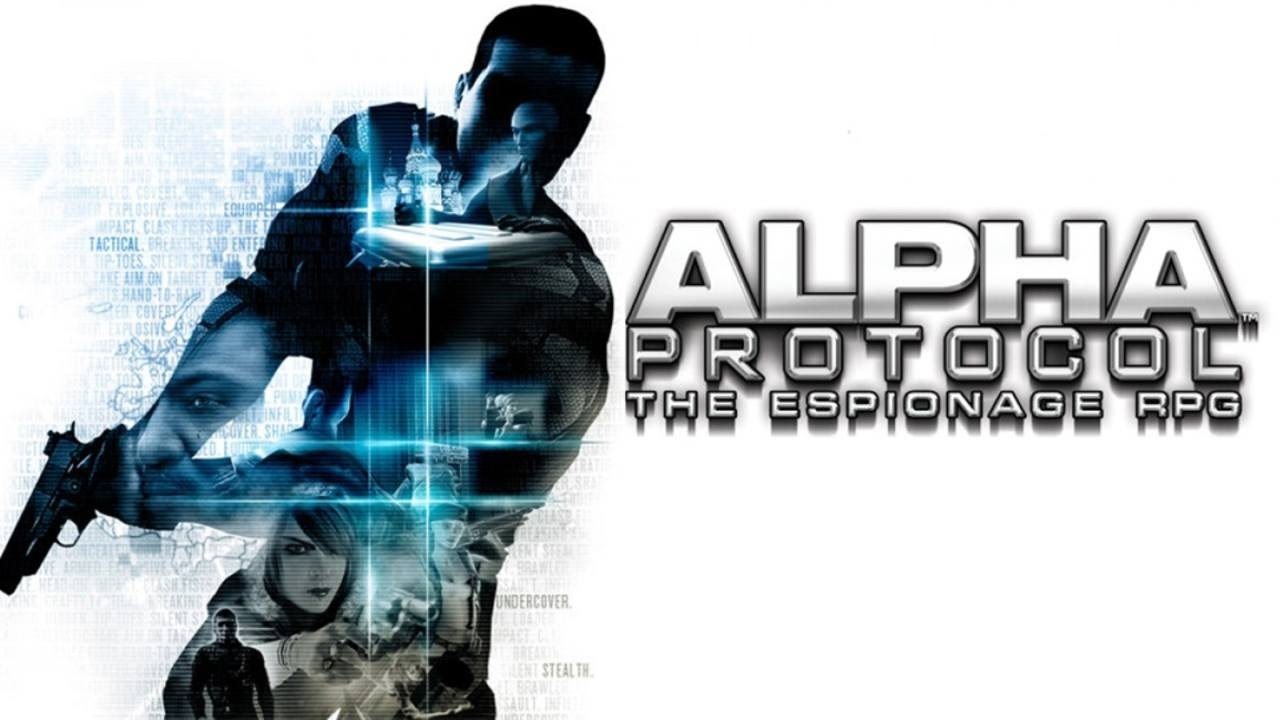Alpha Protocol was the greatest FPS RPG franchise that never was.
Even today it remains a pretty divisive game for those who remember it; at the time, the Obsidian Entertainment-developed, SEGA-published title was released in 2010 on PC/PS3/Xbox 360 to stridently mixed reviews — whether you felt like the game was worth the time of day pretty much came down to whether you could tolerate playing it for the 10-15 hours it took to complete a campaign, and whether you could tolerate a good 2-3 of those 10-15 hours being reloads from checkpoints, or, if you’re particularly unlucky…a save-corrupting error that forces you to restart from a previous file. Usually these don’t wipe all your progress! …Usually. You may notice that most of the art for this piece is from Saudi Arabia and Russia. That’s because somehow I suffered a file corruption bug that donked me back to the beginning of the Russia hub multiple times, and at some point, we had to run this piece.
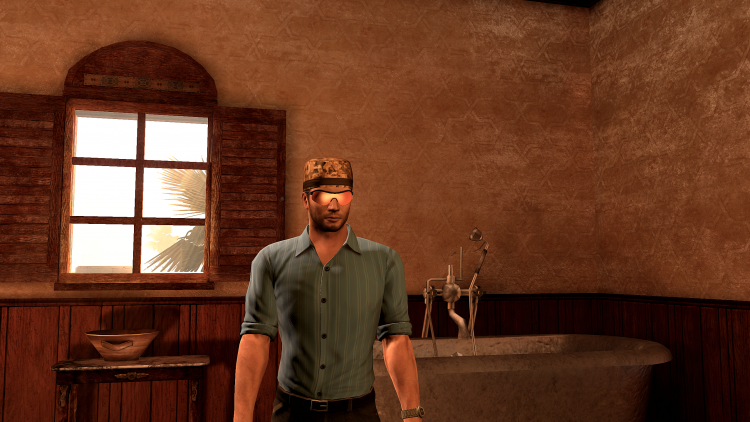
So up front, the game still has some of the legendary performance issues that, along with Fallout New Vegas’s instability at release — Alpha Protocol released in May 2010 and New Vegas in October 2010, for context — led to Obsidian developing a reputation as a high-quality but mercurial developer whose games rewarded players willing to push past and work with a bevy of technical problems in their games. Things are much different now; Obsidian, recently acquired by Microsoft, has put out a string of quality RPG titles with no more than their fair share of technical hiccups over the past couple years, and also been an unlikely player in the MMO space with the tankfighting game Armored Warfare, which is a story for another time. Still, ask someone who was playing games around this time and isn’t a devoted fan of the developer what their impression of the studio is, and some of that residual reputation is likely to be left over.
Even when it’s running 100% properly, Alpha Protocol has some design problems. First, let’s talk about what it does right. The game prioritizes tactical and strategic choice in how you relate to other characters and organizations; generally in any given conversation, your main character, Mike Thorton, is given the option of presenting himself in one of three different ways: Suave/Casual, Aggressive, and Professional. Sometimes you’ll get a context-sensitive fourth option, which usually involves ending the conversation prematurely one way or another. The game tracks how you respond and to whom, and characters’ impressions of you change based on their own personality types, tics, and likes/dislikes. This influences both plot and character developments and it also affects the resting passive bonus you get from whichever NPC is your handler on a given mission — you get bonuses both if they really like you and really dislike you, so here it suffers from that late-aughts/early teens RPG flaw of rewarding moral min-maxing into a saint or a mass murderer, but Alpha Protocol lacks an overall “alignment” bar like the Star Wars: Knights of the Old Republic and Mass Effect games, so you never feel fully locked into character who is a sweeping moral absolutist. Which is good! You’re playing a spy, after all. That would be weird.
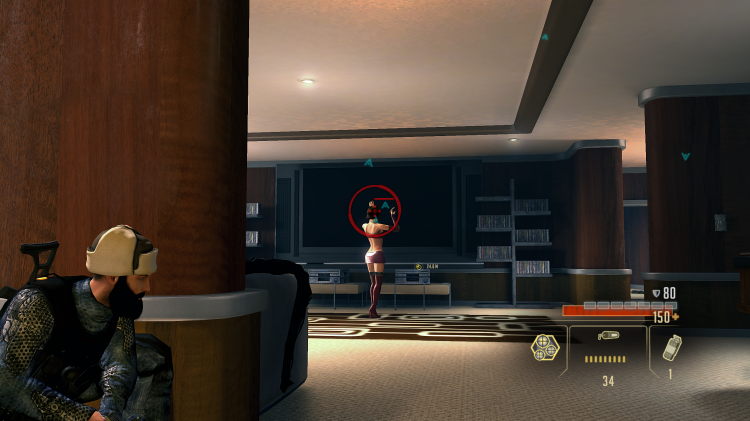
So what’s the design problem here? Well, as many options as you have in conversation, you have basically none when it comes to how you play the actual game. The combat is balanced so poorly and the AI so intransigent that far from the nuance of the social system, there is an actual clear correct way to play Alpha Protocol when it comes to building your character, and it’s as a Pistol Stealth Sabotage operator. The game gives you active skills with each weapon specialization; while the Assault Rifle gives you a clumsy auto-aim, the Shotgun gives you a short period of super-damage, and the Submachine Gun gives you…infinite ammo for a period of time (?!), the Pistol’s Chain Shot acts like a primitive version of the Sync Shot mechanic from the recent Ghost Recon games: it simply deletes between two and four enemies from the screen, depending on how much you’ve upgraded the base skill, or does overwhelming damage to a boss.
Stealth, of course, is self-explanatory: you get a suite of cloaking device-like and silent movement options that make sneaking up behind enemies and dispatching them trivial. Something that’s very strange to the modern eye going back to Alpha Protocol is how quickly the bodies of fallen enemies vanish; even the ones that do persist don’t seem to alert guards to the fact that something is wrong — a guard has to see a guy get shot, see Mike, or hear gunshots to go in a higher alert mode. (As in real life, the pistol is the weapon that most effectively takes a sound suppressor, which takes care of the gunshot noise issue fairly neatly.) The Sabotage skill makes the game’s hacking and lockpicking minigames — yes, Alpha Protocol has those, and the hacking minigame in particular might be the worst implementation that’s ever been done of one of these — both easier and more rewarding, and is mainly the choice here because you don’t actually need any of the other skills.
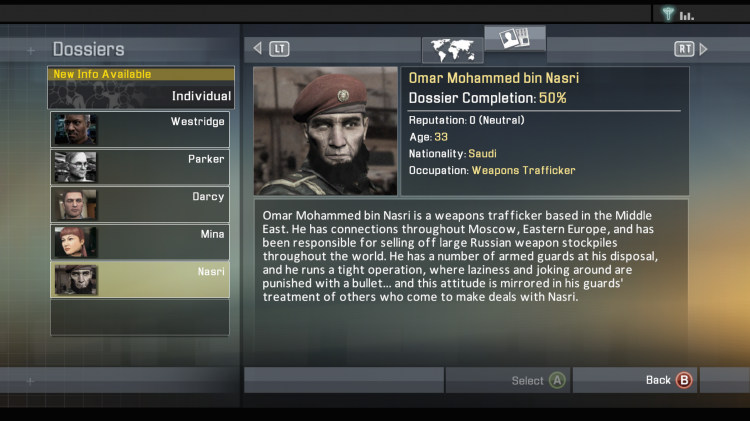
The other weapon skills are useless, since for the one or two sniping missions you’ll have a special setpiece rifle weapon and otherwise you’ll be using the pistol exclusively. There’s a Martial Arts skill but you never have to take anything in it because the basic Martial Arts combo you get handed effectively stunlocks enemies; the only thing putting more points in it does is make the melee combo take less time to whittle enemy HP down. There’s a catchall consumables skill that improves grenades and other devices, but you hardly ever need them: Chain Shot is both the best stealth skill and the best breakdown firefight skill in the game. If you beat it playing otherwise, you’re basically doing a challenge run out of boredom; unlike the game’s fantastic social system and its myriad branching trees, when it comes to the shooter portion, there’s just a single clear right answer for every situation Mike will find himself in. That’s a far graver sin in my book than some bad AI or, uh, the enemies occasionally all despawning when you reload from a checkpoint.
The game has a hub-based structure much in the way the original Mass Effect did, except with cities instead of planets, and like the original Mass Effect it has a tutorial hub, Saudi Arabia. Mike Thorton — you — get sent to Saudi in order to investigate a shipment of missiles from an American defense contractor that were stolen by a terrorist organization and used to shoot down an airliner (these are very obvious stand-ins for ‘the American businesses who profit off of war in the Middle East’ and ‘al-Qaeda,’ respectively). Wouldn’t you know it, the missiles were sold to the terrorists, not stolen by them, and now you’re on the run with the American national security state trying to kill you. By necessity, Saudi Arabia is the worst hub in the game. It has a bunch of tutorialized gameplay with NPC handlers and basically no humor in it. Stop me if you’ve heard this before, but you need to push past it to get to the parts of the game where you meet psychotic ex-pat espionage cosplayer Stephen Heck in Taipei, or villainous Bond girl-like ally SIE in Moscow, or…this guy, in Rome.
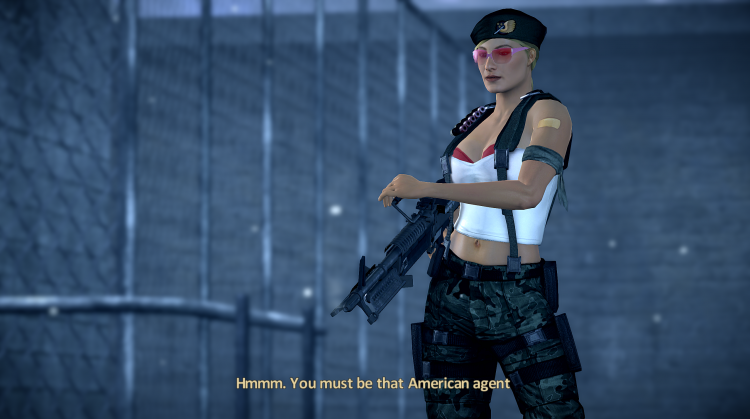
Alpha Protocol is an absolutely fantastic game once you get through all the reasons that it’s absolutely not a fantastic game, if that makes sense; it was doing storytelling stuff with a complexity that BioWare would step back from in their later Mass Effect and Dragon Age entries, as too much character choice made it hard to keep stuff straight in the accumulating sequels (not a problem they have anymore, sadly) and that Bethesda, in the Fallout series, never really seemed interested in doing in the first place. Arkane Studios is doing the most interesting work in the FPS RPG genre right now, with the Dishonored and Prey lines, and with Deathloop looking to continue riffing in that space — but Arkane focuses on diverse, choice-based gameplay usually around a much tighter story with fewer NPC interactions. Now that Obsidian has Microsoft backing it financially, it might be time to see the IP can be pulled free from SEGA’s grasp, where it has resided, fallow, since Alpha Protocol bombed. But then, the tagline for the project was “The Espionage Game.” And what would be more spy-like than, say, Omega Sanction opening up shop one day and insisting no, there’s no one here by the names of Mike Thorton or Alan Parker, what are you talking about? Now you’re going to Syria to locate some chemical weapons…
Final Verdict
I realized halfway through planning this that you actually can’t buy Alpha Protocol for Steam anymore, though if you already owned the title there you can still download it from their servers. The reason is this little setpiece number, which is probably the highlight of the game for most of the people who have finished it. Sadly, the licensing rights for the song played there, Turn Up the Radio, have expired. You can still get it used for the consoles it launched on — with all the technical issues that implies — for fairly cheap. Like “it will cost more in shipping than list price” cheap. If you’ve got the patience for plugging the PS3 or XBox 360 back in and dealing with a temperamental play experience, though, it’s absolutely the best “one of those” outside of the two absolute kings of the genre, Mass Effect 2 and Star Wars: Knights of the Old Republic 2.
